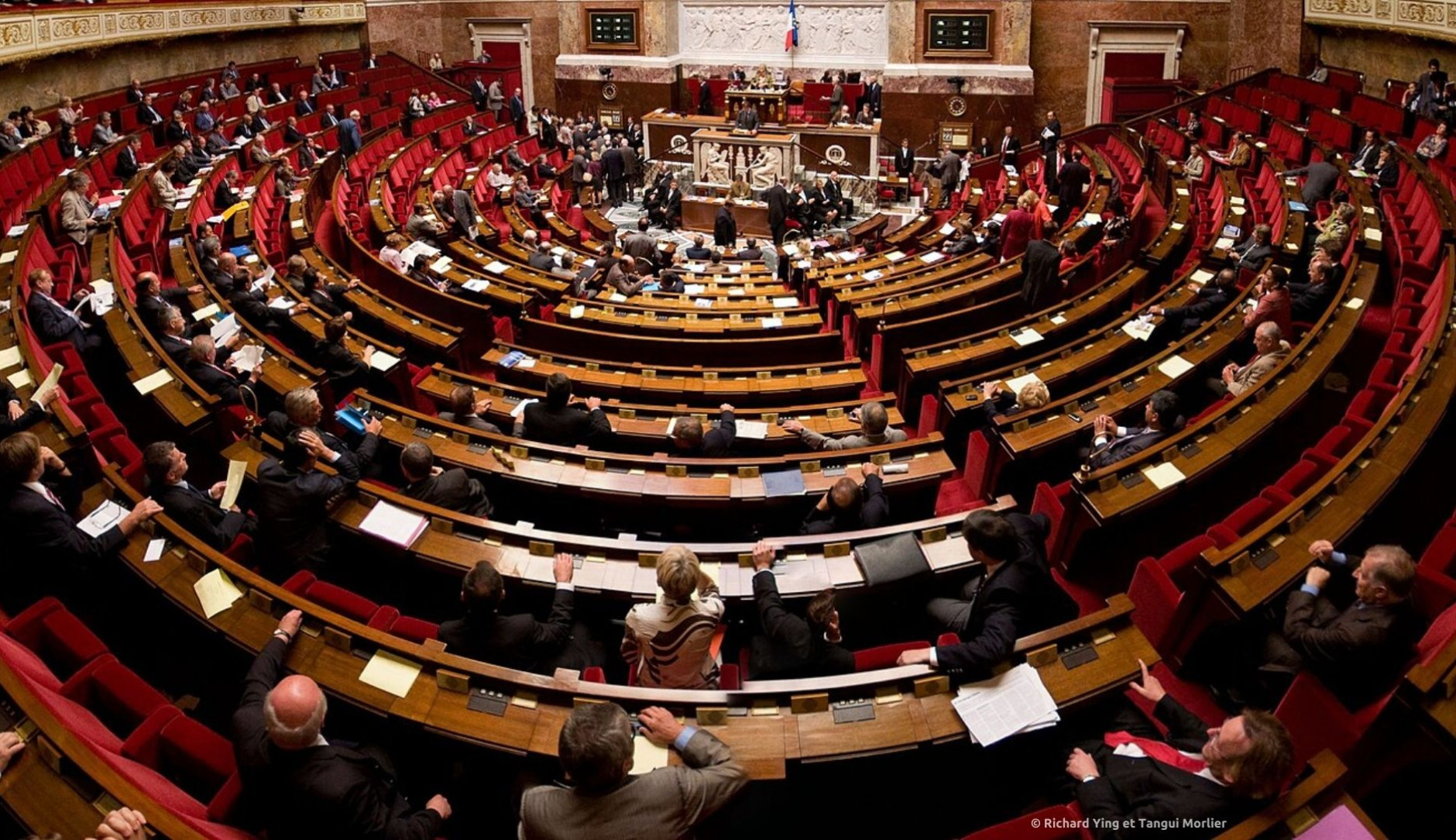Snap Elections in France: Europe is on the Ballot
Volt, alongside grassroots political movements, has launched the Front européen to offer a progressive, pro-European alternative in the upcoming elections. Amidst rising far-right influence, fragmented left-wing coalitions, we aim to unite pro-European voices and safeguard democratic principles.

On the early evening of June 9th, when the first exit polls carrying the democratic verdict for the European election were arriving from most EU member states, French President Emmanuel Macron made an announcement that sent shockwaves resounding in Europe and beyond. After experiencing a surge of the far-right with the Rassemblement National (RN) gaining 30 percent of the vote, the President announced the dissolution of parliament (the Assemblée nationale), and called for new legislative elections. Calling snap elections just three weeks after the European elections, his intention was to thwart the far right, and prevent the left from creating a strong coalition. He failed on both sides, and it’s Macron’s own centrist alliance which looks like it is going to be squeezed, and the far right is likely set to receive a few hundred MPs.
The Rassemblement National of Marine Le Pen, polling at a formidable 33 percent, have never been closer to obtaining a majority and making Jordan Bardella, Le Pen’s protégé, the prime minister. Bardella’s coalition vows to challenge the primacy of EU law and to transform the EU into a “European alliance of nations''. At the same time, as leader of the governing pro-EU coalition, Macron has taken striking stances against transgender rights or what he called “immigrationism”, in an attempt to contain the conservative wave. On the opposite end, the left has formed an eclectic alliance of Greens, Socialists, but also the eurosceptic left – Communists and Jean-Luc Mélenchon's La France Insoumise (LFI). This has raised many questions about how the coalition would deal with European issues, or how far it would go to support Ukraine. In this polarised environment, one crucial thing is missing: a clear cut pro-European and progressive platform.
The implications of this election extend far beyond France’s borders. At a time when all EU top jobs are up for grabs, France's consent is indispensable at the EU level. As a nation that controls significant NATO resources, is nuclear-armed, and holds a permanent seat on the UN Security Council, France's political direction impacts not just Europe, but global geopolitics. Leaders from Germany to the United States have expressed deep concern about the potential of having to negotiate with a far-right government, making this election a critical moment watched closely by everyone across Europe and beyond.
France’s intricate electoral system often necessitates strategic voting and alliances among candidates who obtained more than 12.5 percent of votes in the first round. Usually this means the top two candidates, however, the predicted high turnout and lower number of candidates could lead to more "triangular" second rounds—scenarios where three candidates qualify for the runoff. This unusual situation complicates strategic calculations and heightens the unpredictability of the election outcome.
In this uncertain context, Volt has spearheaded the drive to unite citizens that aspire for a more democratic Europe, as well as social and ecological progress. Volt and several grassroot political movements such as 100 % Citoyens, Europe Equitable of EUCitizensRoute have united under the banner of the Front européen (European Front) to offer a progressive and pro-European choice in every constituency, and to battle the far right’s ultra-conservative and europhobic ideas. However, the Front européen also pledges to do everything in its power to prevent Le Pen and Bardella from taking power and notably:
To call to vote against the far right in the runoff.
To call for the withdrawal of junior candidates in case of a triangular second round that the far right could win to prevent vote-splitting.
The first round is scheduled for June 30, with runoffs planned for July 7. French citizens living abroad are also able to vote online from yesterday June 25 at noon to June 27 for the first round, and from July 3 at noon until the next day for the second.
Finally, Volt and the Front européen call for a more responsible policy-making process in France after this election. The inability of the different political blocs to coalesce into consistent majorities is the underlying issue that has brought about this political crisis. As a pan-European political movement, Volt has a unique perspective and feels the responsibility to help bring France’s pro-European political parties to work together again. The formation of a broad bloc of parties that are firmly pro-European is the solution, rather than just a symptom, to the current political instability.
The stakes in this election cannot be overstated. Every vote cast can be the difference between a Europe that continues to uphold democratic principles and one that succumbs to the tides of extremism. Collective action and political activism have never been more critical to uphold the democratic ideals that have long defined the continent. It is essential for pro-European forces to mobilise, educate, and inspire voters to participate actively in this electoral battle. The upcoming French legislative elections are a pivotal moment for France and Europe. As we stand on the brink of potentially transformative changes, it is incumbent upon every voter to recognise the gravity of their choice. Let us rise to this occasion.
Register via this Google form to receive updates from the Front européen on how to contribute to this campaign.
(Article by Federico Durante, Intern at the GSO of Volt Europa)